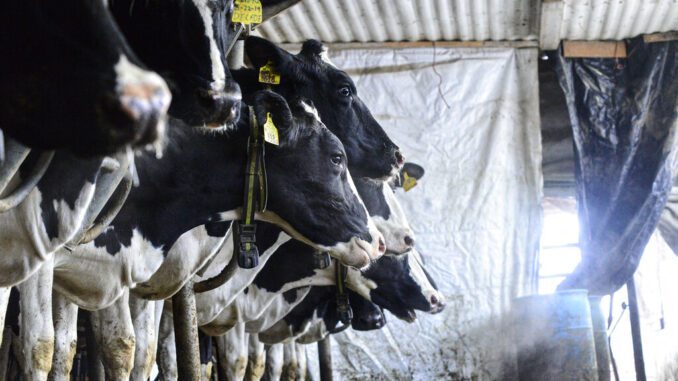
The dairy industry is an invaluable part of the American economy, yet dairy farmers face hardships and obstacles that endanger the industry’s future growth. While the family farm I grew up on in Davie County consisted mainly of cattle and chickens, I am no stranger to the unique challenges dairy farmers face. When it comes to fair trade on the international stage, some of the issues within agriculture become even more complex and harder to resolve.
While I have heard many well-founded concerns and suggestions related to agriculture, one has remained consistent throughout my time in office: the need for consistent, fair trade agreements between the United States and other countries that put the needs of America’s farmers first.
Back in 2019, Congress passed the United States-Mexico-Canada Agreement (USMCA). I was a member of the Whip Team at the time and worked diligently to get the votes to pass this historic replacement of the outdated North American Free Trade Agreement (NAFTA). Like President Trump, I was convinced that our country desperately needed a revamped trade agreement that put American interests first and leveled the playing field for U.S. farmers.
One of the major upsides of the USMCA was that it contained new mechanisms for the United States to enforce fair trade practices with Canada and Mexico through neutral arbitrators. After the Biden Administration released their 2021 Trade Policy Agenda and 2020 Trade Policy Report, it became evident that Canada had failed to reform any of its tariff-rate quotas. More specifically, Canada has used tariff-rate quotas to import a set amount of specific U.S. goods. This is very concerning for American producers of products like fluid milk, cheese, cream, and butter.
Following the report, I sent a letter to Ambassador Katherine Tai of the Office of the U.S. Trade Representative urging her to use every enforcement tool available within the USCMA to hold Canada accountable. Simply put, Canada failed to uphold their end of the bargain when it comes to the agricultural trade terms we agreed upon back in 2019.
Just last week, using the USMCA’s new enforcement mechanism, the U.S. won its first ever dispute settlement panel proceeding. The panel agreed that Canada is placing unfair trade restrictions on U.S. dairy imports. As a result, Canada has 45 days to come into compliance with the USMCA. The result of that compliance will be improved access to the Canadian market for North Carolina dairy farmers.
This news might not dominate the discussion inside the Washington Beltway, but for North Carolina’s dairy farmers, it is a major victory that promises to lead to a fair playing field for one of North Carolina’s most important industries. President Trump and Congressional Republicans fought hard to make sure our trade agreements were fair and maximized the benefits for American producers, workers, and entrepreneurs. We must continue to ensure that our trade partners are playing by the rules and living up to their commitments.



